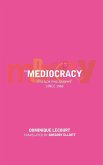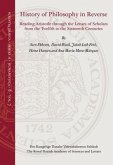An ambitious reinterpretation of a crucial aspect of eighteenth-century thought, the rationalizing and classifying impulse.
Julie Candler Hayes offers an ambitious reinterpretation of a crucial aspect of Enlightenment thought, the rationalizing and classifying impulse. Taking issue both with traditional liberal and contemporary critical accounts of the Enlightenment, she analyses the writings of Denis Diderot, Emilie Du Châtelet, the Abbé de Condillac, Buffon, d'Alembert and numerous others, to argue for a new understanding of 'systematic reason' as complex, paradoxical and ultimately liberating. Hayes examines the tensions between freedom and constraint, abstraction and materialism, linear and synoptic order, that pervade not only philosophic and scientific discourse, but also epistolary writing, fiction and criticism. Drawing on the insights of a wide range of theorists from Adorno, Habermas and Foucault to Deleuze and Derrida, she offers a dialogue between the eighteenth century and our own, an ongoing exploration of the question, 'what is Enlightenment?'.
Review quote:
"readers, especially intellectual historians of science, will find her treatment of Enlightenment text rewarding."
The Historian
"This is a rich and impressive study."
International Studies in Philosophy, Harvey Chisick
Table of contents:
Acknowledgments; Author's note; Prologue: despotic Enlightenment; Introduction: the critique of systematic reason; 1. 'Système': origins and itineraries; 2. The epistolary machine; 3. Physics and figuration in Du Châtelet's Institutions de physique; 4. Condillac and the identity of the other; 5. Diderot: changing the system; Conclusion: Labyrinths of Enlightenment; Notes; Bibliography; Index.
Hinweis: Dieser Artikel kann nur an eine deutsche Lieferadresse ausgeliefert werden.
Julie Candler Hayes offers an ambitious reinterpretation of a crucial aspect of Enlightenment thought, the rationalizing and classifying impulse. Taking issue both with traditional liberal and contemporary critical accounts of the Enlightenment, she analyses the writings of Denis Diderot, Emilie Du Châtelet, the Abbé de Condillac, Buffon, d'Alembert and numerous others, to argue for a new understanding of 'systematic reason' as complex, paradoxical and ultimately liberating. Hayes examines the tensions between freedom and constraint, abstraction and materialism, linear and synoptic order, that pervade not only philosophic and scientific discourse, but also epistolary writing, fiction and criticism. Drawing on the insights of a wide range of theorists from Adorno, Habermas and Foucault to Deleuze and Derrida, she offers a dialogue between the eighteenth century and our own, an ongoing exploration of the question, 'what is Enlightenment?'.
Review quote:
"readers, especially intellectual historians of science, will find her treatment of Enlightenment text rewarding."
The Historian
"This is a rich and impressive study."
International Studies in Philosophy, Harvey Chisick
Table of contents:
Acknowledgments; Author's note; Prologue: despotic Enlightenment; Introduction: the critique of systematic reason; 1. 'Système': origins and itineraries; 2. The epistolary machine; 3. Physics and figuration in Du Châtelet's Institutions de physique; 4. Condillac and the identity of the other; 5. Diderot: changing the system; Conclusion: Labyrinths of Enlightenment; Notes; Bibliography; Index.
Hinweis: Dieser Artikel kann nur an eine deutsche Lieferadresse ausgeliefert werden.








